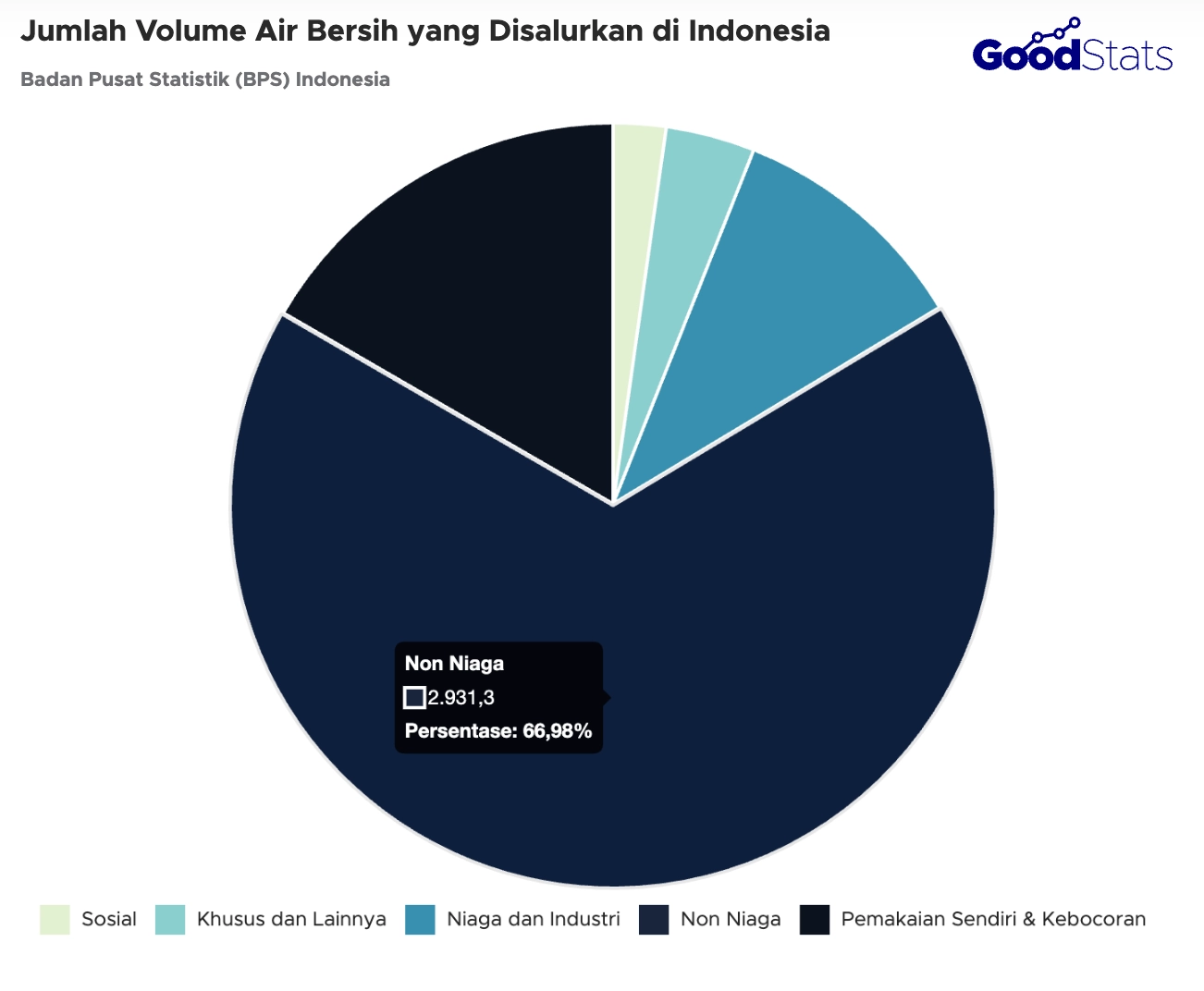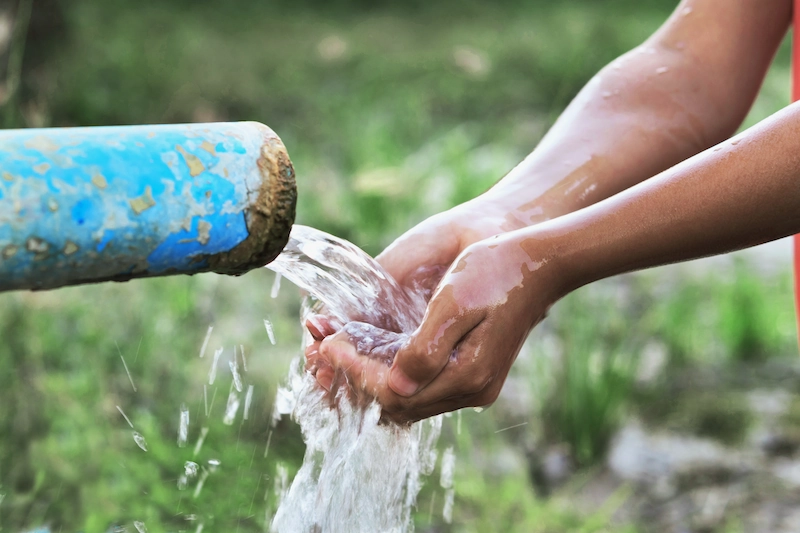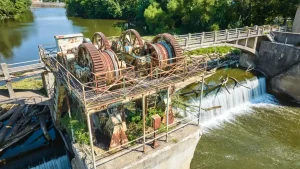Table of Contents
Saving water may seem like a small act, but it can encourage environmental sustainability and mitigate climate change. Every individual has a responsibility to keep clean water available for future generations, and saving water at home can be a good start.
Water is an invaluable and increasingly limited resource, so every saving step, no matter how small, can contribute to maintaining the ecosystem.
Knowing how to save water at home can help reduce water usage without changing much of your daily routine. Let’s start with simple yet effective know-how as presented in this article!
Why Is It Important to Save Water?
Saving water is an urgent need that should not be ignored. With water resources becoming increasingly limited, the younger generation must use water wisely to ensure its sustainability and quality in the long term.
According to data from Badan Pusat Statistik (BPS) in 2021, 2,931.3 million cubic meters of clean water were distributed to the non-commercial sector, including households as the majority.
This number shows the large demand for clean water in this sector, with 14,770,595 customers recorded as using clean water for daily needs.

On the other hand, the data above also reported a leakage of 728.3 million cubic meters, almost a third of the total volume of clean water supply. This amount is greater than the amount of water supplied to other sectors.
Based on the data, we can see a high demand for clean water and a large waste due to leakage. Hence, conserving water becomes a real concern. Such an effort can preserve the limited resources in the long run.
How Can People Conserve Water at Home?
You can try water conservation practices without sacrificing the comfort of everyday life. Starting from small habits, you can save a lot of water and lower the cost of monthly bills. Here are several ways to save water at home that you can try:
1. Turn Off Faucets
When not using water at home, you should make sure to keep the faucet off. Sometimes, we unconsciously leave the faucet running while washing our hands, washing dishes, or brushing our teeth. Though seemingly simple, this ignorant habit can amount to great water waste every day.
For example, when you are brushing your teeth, turn off the tap and only turn it on again when you want to rinse. This also applies when you wash your hands: wet your hands first, turn off the faucet while rubbing the soap, then turn it back on to rinse them. By implementing this habit, you can save a lot of water in a day.
2. Don’t Shower for Too Long
Showering for too long wastes more water. Apart from wasting water, long showers also increase energy usage, especially if you use a water heater.
In this case, you should limit the duration of your shower. Try to take a 5-10 minute shower. For every shower, there are 9 liters of water wasted per minute.
Read also: Join #AksiAsri365, Build Eco-Friendly Habits and Win Amazing Prizes!
3. Don’t Ignore Leaky Pipes
Leaking pipes may cause a significant increase in water waste. Every drop of water wasted due to a leak can mean hundreds of liters lost in a month.
Apart from wasting water, leaks may also increase monthly water bills. To fix this issue, you should immediately repair any leaks, whether in pipes, taps, or water connections.
If you can’t find the source of the problem, you can use a bucket to collect leaking water as a temporary solution. You can use the collected water for other activities, such as watering plants or cleaning the floor.
4. Washing Clothes in Bulk
Washing clothes all at once can reduce water consumption. Running a washing machine requires plenty of water, especially for the washing and rinsing modes.
Having a bulk wash schedule allows you to minimize the use of water. In addition, this idea can also help you save electricity.
5. Use Soap Sparingly
Using too much soap when washing your hands, showering, or washing dishes can lead to water wastage. Why? Because the more soap you use, the more water it takes to rinse it off.
To save water at home, use just enough soap when you need to wash. With less soap to get rid of, you can rinse faster as it does not require a lot of water. This habit not only saves water but also helps reduce soap waste, thus helping to preserve the environment.
6. Utilize Faucet Aerators
Faucet aerators can help reduce household water consumption. These tools have a small apparatus that breaks the water flow into fine droplets.
The faucet aerator can minimize water consumption without reducing pressure. This way, you still get a steady water flow but with much more efficient water usage. Kitchen and bathroom activities with high water usage can benefit from the appliance of a faucet aerator.
Read also: 3 Ways to Turn Clothes Waste into Useful!
7. Schedule Plant Watering and Car Washing
Limiting the frequency of watering plants and washing vehicles can save plenty of water. Instead of watering your plants every day, you can schedule it two or three times a week.
When washing your car, try not to use the hose constantly. Instead, fill a bucket with enough water and use a rag to clean the car’s surface. This technique allows a more targeted and efficient car wash, which leads to effective water conservation.
Saving water is relatively easy. These proposed changes in habits at home can help the environment. Encouraging one small change a day can inspire people to save more water, thus creating a generation of environmentally conscious Indonesians.
Let’s make every action count by joining the #AksiAsri365 movement, an educational, informative, and creative initiative from Indonesia Asri to inspire a sustainable lifestyle. Register as an Asri Citizen at Indonesia Asri and be part of a community committed to creating a greener Indonesia.
Read also: Don’t Throw Used Cooking Oil Away! It Can Be Recycled with Many Benefits!










